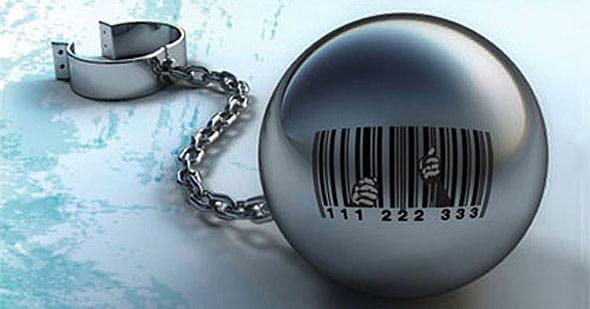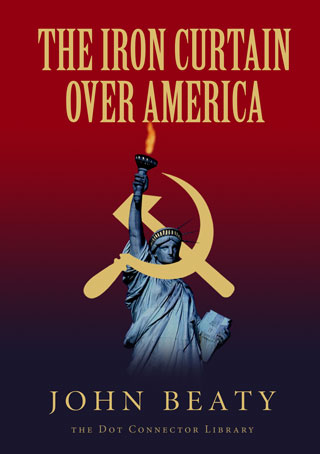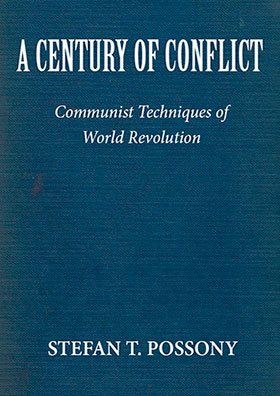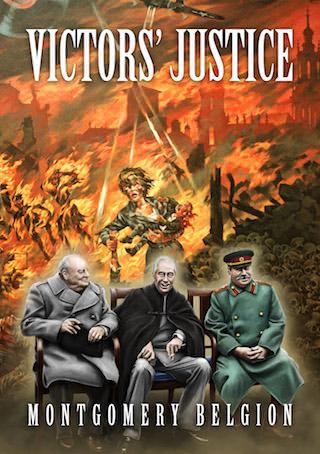Withdraw Your Consent From the State
September 17, 2013

Withdrawing consent to the state means more than this innocuous phrase may suggest.
To withdraw consent is far-reaching. It means a divorce from the state insofar as this is possible. It means having no loyalty to the state, seeing the state as fundamentally unfair and a source of continual injustices, being unwilling to help the state in any way, assuming and feeling no responsibility for the state’s actions, and seeing the state as hostile to peace and society. It means not participating in its rituals and having no appreciation of its symbols or myths. It means a psychological divorce from feeling positive about or approving of its victories. It means working toward the state’s opposite, that is, living together in freedom, friendship, comity and peace, i.e., in society. It means no longer thinking of oneself as a citizen, and not believing that as a citizen one has obligations toward the state or other citizens.
Withdrawing consent from the state means not looking upon oneself as owning the state or influencing its activities or doing a sort of duty for the state. It means viewing the state as a nuisance. It means abandoning all forms of patriotism directed at the state and adherence to its symbols, parades, flags, pledges, songs, anthems and monuments. It means no veneration of any political figure, past, present or future. It means no veneration of the Constitution. It means as much as possible avoiding all interactions with government.
Withdrawing consent does not mean being anti-social. Just the opposite. Going toward a natural order and society of life, freedom and property is the natural law alternative to the state and its artificial legalistic order.
Withdrawing consent can go much deeper than these changes. It can mean seeking out the underground economy, homeschooling, leaving the country, and avoiding the mainstream media interpretations.
Withdrawing consent is actually a creative challenge, to be met by many and varied individual techniques. It might be that a person boycotts movies that glorify the military. It surely means not supporting the troops and not pasting decals to that effect on one’s car. It might mean educating others or counseling young men and women not to join the military and not to seek government jobs. The scope for withdrawing consent is broad. I cannot possibly say what all it involves. What works for me is surely very different from what works for others, and what I am saying here is no blueprint for sure. Just because I don’t organize or attend protests or go on hunger strikes doesn’t mean that others shouldn’t do this or that I disapprove. I don’t participate in any political parties or vote, but neither do I get bent out of shape if others do. To the contrary, God moves in mysterious ways and we never know what series of events may trigger important changes. I am only suggesting that withdrawing consent is actually a much more important thing than what it sounds on the surface.
 For me personally, withdrawing consent does not mean being angry at the state, hating it or turning to violence. I have never liked feeling either anger or hatred, and I try to eliminate them. I do not go around confronting state people intentionally or showing hostility to them. I feel that the state is winning if it “gets” to me. I pay my taxes and register my car. I have no inclinations to use violence whatsoever to the state or state people.
For me personally, withdrawing consent does not mean being angry at the state, hating it or turning to violence. I have never liked feeling either anger or hatred, and I try to eliminate them. I do not go around confronting state people intentionally or showing hostility to them. I feel that the state is winning if it “gets” to me. I pay my taxes and register my car. I have no inclinations to use violence whatsoever to the state or state people.
I have the faith that the natural order of life, freedom and property is going to prevail eventually without using violence and that the state will some day be viewed as a perverse aberration based on false ideas. I believe that as time goes on, even if takes a few hundred years, the falsity of the basic ideas underlying the state will become so clear to most people that they will look upon this era as mad and uncivilized. The ways by which freedom will win are way beyond my powers to know. The important thing is to get the tide flowing toward justice and away from the state, and that people have a clear understanding of what this means and why they should move in that direction.
Michael S. Rozeff is a retired Professor of Finance living in East Amherst, New York. He is the author of the free e-book Essays on American Empire: Liberty vs. Domination and the free e-book The U.S. Constitution and Money: Corruption and Decline.
One comment
Digital discoveries
- Migliori Casino Online
- Casino Non AAMS
- Siti Casino
- Sites De Paris Sportifs Belgique
- Tous Les Sites De Paris Sportifs Belgique
- Meilleur Casino En Ligne Belgique
- Casino En Ligne Belgique Bonus
- I Migliori Casino Online
- Non Aams Casino
- Scommesse Italia App
- Migliori Casino Online Esteri
- Paris Sportif Crypto Sans Kyc
- Site De Paris Sportif
- Sweet Bonanza Avis
- Paris Sportif Ufc
- オンラインカジノ 出金早い
- Casino Live En Ligne Français
- Site De Paris Sportifs
- Meilleurs Nouveaux Casinos En Ligne
- Casino En Ligne Français
- Casino En Ligne
- Casino Retrait Instantané
- Casino En Ligne Fiable
- Meilleur Casino En Ligne 2026
- Casino En Ligne Retrait Immédiat
- Casino Français En Ligne
- Casino Italia Non Aams
- Casino Con Free Spin Senza Deposito
- Siti Di Scommesse Non Aams
- Migliore Casino Non Aams
- Casino Online Non Aams 2026
- 토토사이트 모음
- Top 10 Trang Cá độ Bóng đá
- Casino En Ligne
- Casino En Ligne France
- Casino En Ligne Argent Réel
- Casino En Ligne Retrait Immédiat 2026
- Nouveau Casino En Ligne 2026









While there is unquestionable merit in this idea, I personally find it slightly cowardly. Withdrawing from a crooked process will never resolve the crooked process, it simply removes the person.
An alternative option (neither must be an entirely total, all consuming approach) is to hold the bastards accountable. Not patty cake, but hold them to the law.
I live in a particularly small, totally corrupt county in western North Carolina. Today I am suing the county for failing to provide me with some documents as is required under the State Freedom of Information Act. Of course this requires me to have a reasonable knowledge of the law, and the balls to file a complaint in Superior Court. Being an “indigent” has the advantage of no court costs.
In this particular case, I am almost certain that the documents don’t actually exist, thus crooked Judges and all, the county is going to lose. The ripple effects are already showing positive signs, even before the case is heard.
Yes, you have to study the various laws. Which is not as complicated as one would think. Yes, you need courage not only to file the action, but to stand alone as you probably will. Yes, it can be damn intimidating. BUT first remember “they” are people too and they don’t want someone pissing on them and most important, it is OUR government and “they” will take all they can if we simply allow them to do so.
So my perspective is to fight them where you can in legal battles that they really want to avoid. Join together in support of the folks out front in the fight.